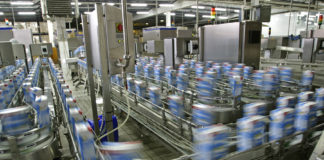
Consumers are becoming more aware of the negative health impacts associated with ultraprocessed foods, a nebulous category that accounts for as much as half of the calories in the American diet. In the latest edition of Talking Points, Rabobank’s Senior Analyst – Consumer Foods, Nicholas Fereday, encourages food and beverage manufacturers to see this moment as an opportunity.
The term ultraprocessed foods comes from the NOVA food classification system, which divides food into four groups. Group 1 comprises unprocessed and minimally processed foods (e.g., whole foods that may have been chopped, dried, etc., but nothing has been added to them). At the other end of the spectrum, Group 4 is ultraprocessed foods, which are industrially formulated, use processes unfamiliar to home cooks, and typically don’t contain anything recognizable as a whole food. Most packaged foods fall into this category.
While there is not a clear line between processed and ultraprocessed foods, Fereday urges food manufacturers to stop using the line “Everything is processed” to dismiss consumer concerns. Rather, they should see where they can turn the conversation into an opportunity. He cities five specific possibilities:
- Highlighting products that are “processed” but not “ultraprocessed”
- Pointing to ongoing initiatives to clean up food labels
- Embracing innovation in seed and food-processing technology
- Redesigning products to get the benefits of processing without the negatives of ultraprocessing
- Using nutrition profiling systems to help consumers make better choices
Fereday notes that science hasn’t yet pinpointed an exact association between ultraprocessed foods and negative health effects, but that’s no reason for companies to wait to act. Referencing the “Non-GMO Project,” he notes: “Experience suggests that once a trend has gained momentum with consumers, it becomes very hard for the food industry to push back.”





![[Report] 2025 Productivity Benchmark Report](https://foodindustryexecutive.com/wp-content/uploads/2025/06/FIE_Sponsored_Resource_900x600_061625-218x150.png)
